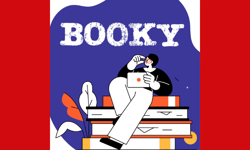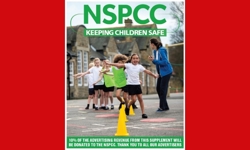Following the exposure of the dark side of national newspapers during the Leveson Inquiry, the press illuminated the summer with a string of important public interest stories.
The newspaper and magazine industry also managed to get its act together and, in a bid to break the log-jam over Leveson, proposed its own regulator, the Independent Press Standards Organisation, just as MPs were heading off for their holidays.
It also emerged during the summer that national newspapers were not the only organisations who had hired private investigators to conduct allegedly illegal inquiries. Blue-chip corporations, management consultants, oil companies, accountancy firms, venture capitalists, celebrities and two dozen law firms were among around 100 companies that may have paid rogue private investigators to obtain personal information.
This led newspapers to ask “why just us?” and to wonder how come no company executives or heads of law firms were being subject to dawn raids by police as has happened to journalists.
There were signs of a growing fight back, perhaps best summed up by an outburst by Times executive editor Roger Alton picking up the London Press Club award for best daily newspaper of the year in May: "Thanks to the London Press Club for standing by the British press and celebrating its excellence at a time when it’s under some ferocious attack from an unruly collection of clapped-out hackademics, coked-up celebrities, loved-up lawyers, vengeful politicians. They are bastards one and all."
The image of the press will take another battering in a series of criminal trials over alleged phone hacking and bribery of officials. In the meantime, the successes of the battles waged by the press on behalf of the public should be celebrated. Here are some of the outstanding stories broken this summer:
Sunday Times victory over crime boss
In July, David Hunt lost a libel case against the Sunday Times over a story described by Mr Justice Simon, who tried his libel complaint, as “a serious piece of investigative reporting”. Hunt, said the judge, has been involved in fraud, prostitution, money laundering and “extreme violence”. Previously confidential documents produced at the trial revealed that the police and other crime-fighting agencies were well aware of his activities for many years.
The Sunday Times not only exposed Hunt but raised questions about possible police corruption. The intimidating atmosphere surrounding the case was demonstrated by the way five minders employed to protect Sunday Times’ witnesses suddenly quit after the first day of the court hearing and a corporate security firm refused to take the job on.
The Sunday Times said in a leader: “It has taken extremely brave witnesses, including a persistent investigative reporter, Michael Gillard, to bring these facts before the public. It has been a high stakes legal battle. This newspaper has needed deep pockets to fill the vacuum left by those who should have taken on Mr Hunt long ago."
Undercover officers tried to smear the family of Stephen Lawrence
In June, the Guardian in an exclusive by Rob Evans and Paul Lewis, revealed how undercover police officer Peter Francis claimed he participated in an operation to spy on and attempt to "smear" the family of murdered teenager Stephen Lawrence, the friend who witnessed his fatal stabbing and campaigners angry at the failure to bring his killers to justice.
Francis said his superiors wanted him to find "dirt" that could be used against members of the Lawrence family, in the period shortly after Lawrence's racist murder in April 1993. He also said senior officers deliberately chose to withhold his role spying on the Lawrence campaign from Sir William Macpherson, who headed a public inquiry to examine the police investigation into the death.
There were other claims of malpractice by undercover officers who used the identities of dead children to create fake identities as a result of a two-year long investigation by the Guardian journalists.
Guardian vindicated over Ian Tomlinson campaign
In August, the Met finally apologised to the family of newspaper seller Ian Tomlinson, killed by one of its officers during the G20 protests in London four years ago. The truth about the circumstances surrounding Tomlinson’s death came out via the investigative reporting of the Guardian’s Paul Lewis, who was thanked by the family. The Met accepted that “excessive and unlawful” force had been used and said an undisclosed financial settlement had been reached with Tomlinson’s family.
Politicians in lobbying scandal
In May, MP Patrick Mercer dramatically resigned after being confronted by the Telegraph following a joint investigation with Panorama over allegations that he was prepared to secretly lobby on behalf of Fiji. Members of the House of Lords were also implicated in the “cash for questions” allegations following a sting involving a fake lobbying firm. In July, government ministers outlined plans for a statutory register of lobbyists, saying it would boost public confidence about outside influence on decision-making. Under proposed laws, firms lobbying ministers and civil servants would have to declare who they represented.
Health ‘cover-up’ officials named
In June, pressure from the press led to the identification of officials of the Care Quality Commission alleged to have been involved in the cover-up of failures over deaths of babies at a Cumbria hospital. The CQC named former chief executive Cynthia Bower, her deputy Jill Finney and media manager Anna Jefferson. They were all said to be present at a meeting where deletion of a critical report was allegedly discussed. The Daily Mail said in a leader: "It was only after newspapers and the Information Commissioner challenged this false claim that the CQC was made to see sense.”
The Indy reveals “the other” hacking scandal
The Independent revealed in June: "Some of Britain’s most respected industries routinely employ criminals to hack, blag and steal personal information on business rivals and members of the public, according to a secret report leaked to the Independent. The Serious Organised Crime Agency (SOCA) knew six years ago that law firms, telecoms giants and insurance companies were hiring private investigators to break the law and further their commercial interests."
Guardian scoops US press in own backyard
In June, the Guardian’s fledgling US operation pulled off a major scoop with Glenn Greenwald’s story about National Security Agency whistleblower Edward Snowden and his revelations on the extent of top-secret United States and British government mass surveillance programs of emails and social media involving major internet companies. The article in which Snowden identified himself became the Guardian’s most popular online story, receiving 3.7 million page views. In total, the Guardian's NSA content was viewed by 8.8 million unique browsers across desktop and mobile.
The Times on grooming gangs
Andrew Norfolk continued his award winning investigations in the Times into grooming of young girls by Asian gangs. The paper also ran an in-depth campaign calling for more safety protection for cyclists.
The Liverpool Echo fights for Hillsborough families
Campaigning by local newspapers on behalf of their communities was recognised in May, when the Liverpool Echo was named Newspaper of the Year at the Regional Press Awards for its long running campaign on behalf of the families of the victims of the Hillsborough disaster. Judges praised the Echo’s campaign, saying: “Not only was it an extremely long campaign, it was an excellent example of a newspaper standing by its community against politicians and the police.”
Tax evasion, A&E crisis and Nigella
A number of papers investigated tax evasion by major multi-national corporations and the crisis in NHS accident and emergency departments. The summer also saw a fantastic tabloid picture scoop by the People of Charles Saatchi with his hands around the throat of his wife, Nigella Lawson, which was published around the world. Divorce proceedings followed.
The Loverson Inquiry
Another sign of the press getting its mojo back was the way it kept chewing over the Leveson Inquiry. First came the revelation that Leveson lawyers David Sherborne and Carine Patry Hoskins were having an affair, prompting “Loverson Inquiry” headlines, then that they had earned a total of £385,000 for their work.
There was plenty of robust comment in the press after it was revealed Leveson was aware hacking went far wider than the press but considered the allegations beyond the inquiry’s remit.
Industry launches IPSO
In July, the press industry decided to go it alone and set out plans for a new regulator - called the Independent Press Standards Organisation to replace the Press Complaints Commission.
The move is backed by the Newspaper Society, the Newspaper Publishers Association, the Scottish Newspaper Society and the PPA.
It was proposed that IPSO would have the power to impose £1 million fines for serious or systemic wrong-doing; upfront corrections and adjudications; a standards and compliance arm with investigative powers; an arbitration service to offer an alternative to the libel courts; and a whistleblowers’ hotline.
IPSO claimed the support of “the overwhelming majority of UK national, regional and local newspaper and magazine titles”. However, in August, the Guardian said it would not back IPSO, claiming signing up to a regulator which does not have the support of either Parliament or the victims of past media excesses would be “futile”. It also said that the big publishers would have too much influence on the proposed regulator.
Whatever the outcome of the debate on regulation, at least this summer proved that while the hacking scandal showed the British press at its worst, when our newspapers are at their best – and clearly acting in the public interest - they can be brilliant.












